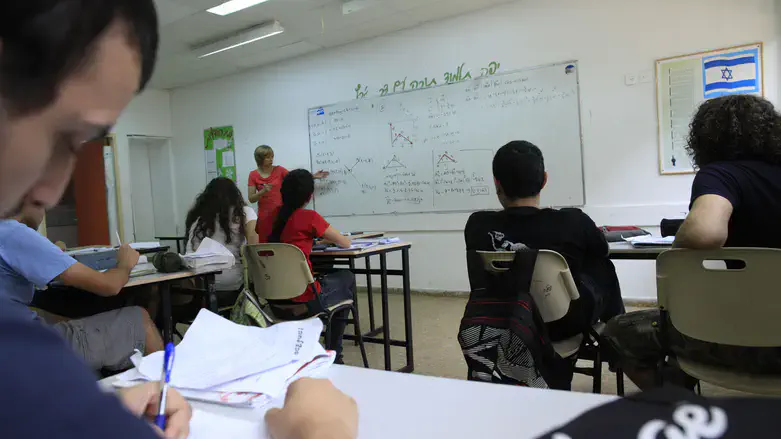
A newly published survey has uncovered a significant increase in antisemitism faced by Jewish teens in high schools worldwide, following the events of October 7, 2023. The survey, conducted by Mosaic Teens, a division of Mosaic United which is a joint initiative with Israel's Ministry of Diaspora Affairs and Combatting Antisemitism, along with Jewish philanthropy, involved nearly 800 Jewish students aged 14-18 from various countries, and revealed a widespread escalation in both the perception and direct experience of antisemitic incidents.
The survey, developed by Tovanot, an academic survey company, and promoted online by JMG, underwent a careful vetting process to ensure that the results accurately reflected the experiences of the targeted demographic.
The survey data indicates a 29.1% global rise in the perception of antisemitism among Jewish teens, with a particularly sharp increase of 45.9% outside the United States. This growing sense of vulnerability is reflected in the fact that nearly half (47.4%) of the respondents reported experiencing antisemitism personally, with 78% reporting that these incidents occurred within school settings. Additionally, antisemitism was also prevalent on social media and in public spaces. Painting a troubling picture of the environments where these teens spend a significant portion of their time.
Mosaic Teens stated that "one of the most disturbing findings" of the survey is the identification of peers as the main perpetrators of antisemitism, with 68.7% of teens pointing to their fellow students as the source of hostility. "Equally concerning is" the fact that 26.6% of respondents reported facing antisemitism from teachers, and 27.4% from school administrators. These figures are particularly high in the United States, suggesting that antisemitism is not just a peer-driven issue but is also ingrained within the very institutions meant to educate and protect students.
The survey also sheds light on the presence of antisemitic content in educational materials, with 14.3% of teens reporting that they encountered such content through school assignments or curriculum. This issue is notably more prevalent in the U.S., raising questions about the oversight and appropriateness of educational content in American schools.
Mosaic stated, "The impact of this rise in antisemitism has led to significant behavioral changes among Jewish students. More than 30% have started avoiding wearing Jewish symbols, 35% are hesitant to post Jewish or Israeli content online, and 22% have gone as far as to conceal their Jewish identity since October 7. These changes reflect a deep-seated fear and a lack of sufficient support, as 78% of respondents felt that their concerns were dismissed or minimized, particularly in the U.S."
"Looking forward, Mosaic Teens plans to release additional findings from this survey in the near future that will delve deeper into Jewish identity among teens and their perspectives on the Israel-Hamas conflict. These upcoming insights are expected to shed critical light on how the ongoing war has influenced young Jewish individuals' understanding of their heritage and their relationship with Israel as well as the influence their Jewish experiences and education have on their views.
"The findings of this survey underscore the urgent need for a concerted effort to combat antisemitism in educational settings. With Jewish students increasingly feeling unsafe and unsupported, there is a critical need for stronger interventions to address these issues and ensure that all students can learn in a secure and respectful environment," Mosaic's statement concluded.
